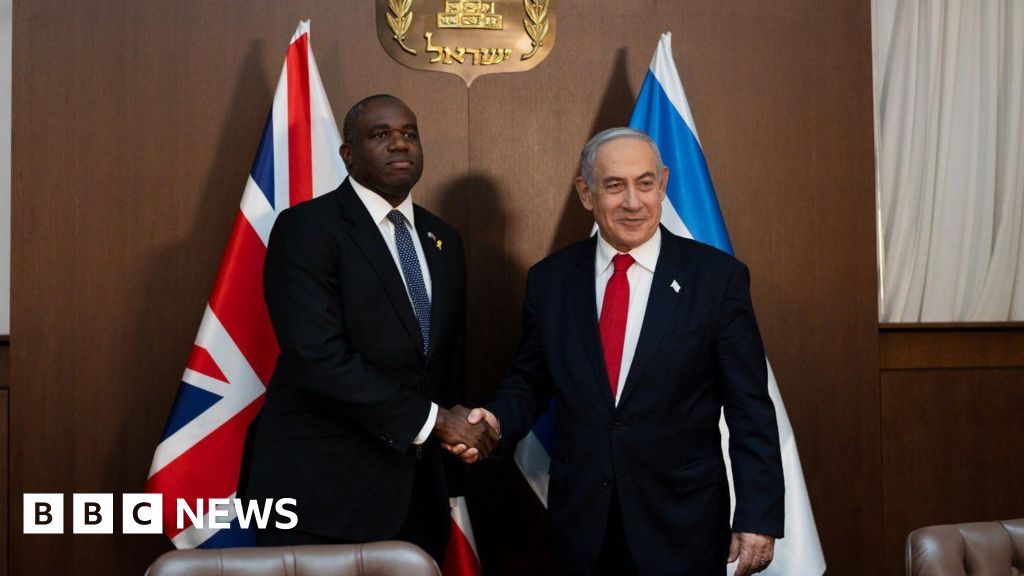It felt like quite a moment.
The new-ish government spelling out a different approach to Israel and the conflict in the Middle East from that of its predecessor – the third such time it has done so in two months.
When David Lammy became foreign secretary in early July, he requested an assessment of whether the evidence suggested Israel’s approach to the war could be in breach of international law.
The assessment, I understand, was similar to those requested by the previous government and conducted by the same group of officials.
But officials advise and ministers decide – and ministers now have come to a different conclusion than their predecessors.
Here is how the process works.
Laws passed when Labour was last in government set out the controls that must be in place when goods are exported for military use or potential military use.
They are the Export Control Act 2002 and the Export Control Order 2008.
As Business and Trade Secretary Jonathan Reynolds set out: “Following a rigorous process in line with the UK’s legal obligations, the UK Government has concluded that there is a clear risk that military exports to Israel, where used for military operations in Gaza, might be used in serious violations of international humanitarian law.”
You can read Mr Reynolds’ full written statement here. And here is the government’s summary of its own arguments.
It is worth keeping a sense of proportion on all this.
Of roughly 350 arms exports to Israel, about 30 are being suspended – so less than 10%.
And the UK is not a particularly significant arms exporter to Israel anyway.
But messages and signals matter in politics – internationally and domestically.
The Israeli government, which was told privately in advance before the public announcement, has expressed its disappointment.
Shadow foreign secretary Andrew Mitchell – himself the deputy foreign secretary in the last Conservative government until earlier this summer – wasn’t initially critical, but later was, saying the move had “all the appearance of something designed to satisfy Labour’s backbenches, while at the same time not offending Israel, an ally in the Middle East. I fear it will fail on both counts”.
Senior government figures insist they are legally obliged to suspend these export licences given the conclusion they have come to.
But they are trying to ameliorate their actions with their words, insisting too that the decision is a matter of “deep regret.”
And they say this decision was taken on its own merits, as were the other two relating to the conflict that I mentioned a moment ago.
They were the resumption of funding for UNRWA, the UN’s agency for Palestinian refugees.
And the dropping of plans to challenge the right of the International Criminal Court to seek an arrest warrant for Israeli Prime Minister Benjamin Netanyahu.
There is subtlety and nuance in each of these decisions, but they do collectively add up to a more Israel-sceptic posture than the last Conservative government adopted.
For much of the last year, since the Hamas atrocities in Israel, Labour has felt political pressure from those who claim it has been too unthinkingly supportive of Israel.
And in seats with a substantial Muslim population, the conflict and Labour’s approach to it often proved to be a big issue for voters at the general election.
Yes, that sense of proportion and scale is worth bearing in mind.
But so too the message and the signal being sent – about the different choices a new government is taking.

